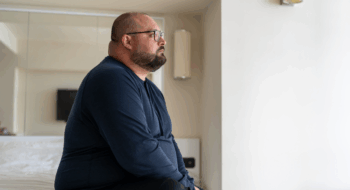Finding your balance is an important part of daily life – and not just figuratively.
“You want to let your primary care provider know if you find yourself tipping over when you walk, feeling unsteady or tripping often,” says Dr. Michael Remines, a family and internal medicine provider at Tidelands Health Family Medicine at The Market Common.
Balance issues can affect your safety, mobility and overall quality of life.
“It can take time to correct your balance,” Dr. Remines says. “But it’s important to maintain your equilibrium.”
Here are three common causes of balance problems and how to treat them:
Loss of strength
Balance problems are more common in adults over the age of 60, Dr. Remines says. That’s when our core strength and muscle mass start to deteriorate.
“Once you lose your core, you’re very unstable,” he says.
What you can do:
- Stay active throughout life. Regular exercise helps maintain muscle tone and coordination.
- Try physical therapy. A physical therapist can assess your gait, identify problem areas and create a personalized plan to improve strength and stability.
Neuropathy
Another big cause of balance problems is neuropathy, which is a form of nerve damage that can make your extremities numb.
It’s commonly linked to:
- Diabetes
- Vitamin B-12 deficiency
- Thyroid disorders
- Alcoholism
- Autoimmune diseases
“Once you stop being able to feel your feet, you don’t know where you’re at while you’re walking,” Dr. Remines says.
What you can do:
- Use assistive devices such as a cane to improve stability.
- Adjust your habits. For example, always turn on the lights when walking at night.
- Engage in balance-focused physical therapy to strengthen muscles and improve coordination.
Dizziness
A big cause of dizziness is problems with blood pressure, or the treatment for it. A lot of people are on medication to manage their blood pressure or heart disease, but dizziness can be an unexpected side effect of those medications.
Alternatively, untreated low blood pressure can also cause someone to feel dizzy.
“It’s not uncommon,” Dr. Remines says. “Sometimes it means adjusting the dosage or making sure to take the medication on a strict schedule.”
In other cases, dizziness may be caused by an inner ear issue, infection or injury. In very rare cases, a tumor could be the cause.
It’s best to talk to your doctor about possible causes if you’re having balance issues.

Dr. Michael Remines
Family and internal medicine physician at Tidelands Health Family Medicine at The Market Common
Bio
Tidelands Health family and internal medicine physician Dr. Michael Remines offers care at Tidelands Health Family Medicine at The Market Common.
Learn MoreMedical Education
Education
West Virginia School of Osteopathic Medicine
Residency
University of Tennessee Medical Clinic
Meet the Expert
Dr. Michael Remines
Tidelands Health family and internal medicine physician Dr. Michael Remines offers care at Tidelands Health Family Medicine at The Market Common.




